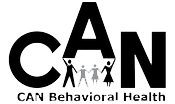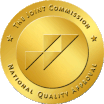Treatment Approach
CAN Behavioral Health’s treatment approach is a Multimodal, Dual Diagnosis Program with a 12-Step element. Some of the Multimodal approaches incorporated are detailed below:
Crisis Intervention TherapyCrisis intervention therapy aims to intervene as quickly as possible after the traumatic event occurred. The goals are to help the client clarify the event, minimize the use of destructive coping skills, and create productive coping techniques.
Psycho-Education TherapyPsycho-education therapy involves the therapist teaching the survivor about the impact of trauma, common disorders associated with trauma, and ways to cope with symptoms.
Solution Focused TherapySolution focused therapy seeks to establish goals and solutions to a client’s problem that utilize the client’s strengths. The client sets their own goals and is aided by the therapist through psycho education and interactive counseling.
|
Cognitive Behavioral Therapy (CBT)Cognitive behavioral therapy stems from the idea that people are characterized by how they think about the world, and that the way they think and interpret events leads to emotional responses. The goal of CBT in the context of rape crisis counseling, is to teach the client to identify and change irrational or dysfunctional thoughts about their rape that are causing negative emotions and reactions.
Substance Abuse TherapySubstance abuse therapy involves addressing the use of a substance such as alcohol or drugs as a coping method. The goal is to work through the addiction and develop more adaptive coping methods. CBT and 12-step programs are the most common approaches.
Narrative TherapyNarrative therapy involves telling and retelling the story of a trauma in order to better understand it, and work through the problems associated with it.
|
Other Information
What is a Dual-Diagnosis Program?Dual-diagnosis treatment programs treat those struggling with a mental disorder and an addiction. Although traditional care for dually-diagnosed individuals has been to treat each diagnoses separately, CAN’s approach is to provide individualized treatment plans that include therapy for all disorders as needed.
|
What is a 12-Step Program?A twelve-step program is a program based on a set of guiding principles (accepted by members as 'spiritual principles’, based on the approved literature) outlining a course of action for recovery from addiction, compulsion, or other behavioral problems.
|
|
401 W Texas Ave, Baytown, TX 77520
Phone: 281- 427- 4226 | Fax: 281-839 -7848 Email: [email protected] |
© 2023 CAN Behavioral Health. All rights reserved.
If this is a life-threatening emergency, please dial 911 or the National Suicide Prevention Lifeline at 800-273-8255.





